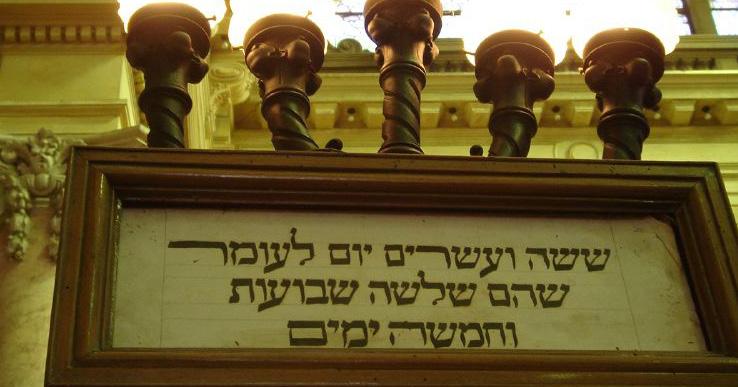
3 minute read
Never spiritually satisfied
Rabbi Yossie Shemtov
Every day during the month of Iyar, we observe the mitzvah of Sefirat HaOmer, or counting the Omer. This mitzvah begins on the second day of Passover and continues until the eve of Shavuot. The counting is practiced daily after nightfall with some counting from a Siddur (prayer book), while others rely on a mobile app to assist them.
The counting of the 49 days corresponds to the time when, in the Holy Temple in Jerusalem, an “omer” or measure of barley was offered each day during this seven-week period. “You shall count … from the day that you brought the omer as a wave offering,” the Torah instructs us in Leviticus 23:15. We continue the tradition of counting even after the Temple’s destruction.
What is unique about this mitzvah is that each day is equal in importance. Counting each one is necessary for the days that proceeded and the days that will follow. Each day contributes to the totality of the counting and carries a significance of its own. Kabbalists even offer a meditation that focuses on 49 inner traits and qualities to reflect on each day.
“This seven-week period is not an ordinary one,” explains Rabbi Simon Jacobson, author of “Spiritual Guide to Counting the Omer.” “This counting expresses a Jew’s eager anticipation of receiving the Torah on Shavuot, 49 days after experiencing the liberation of Passover. This period is a time of personal refinement and introspection in preparation for receiving the Torah.” You would think that once the Jewish nation was liberated from slavery in Egypt, their new status would suffice (“Dayeinu,” as we say at the Seder). But G-d made it clear that we should never be spiritually satisfied. “When you take the people out of Egypt, you will worship G-d on this mountain,” the verse reads (Exodus 3:12). We always strive for new heights.
This approach to emotional development and spiritual growth is perfectly encapsulated in the Yiddish motto attributed to Rabbi Shmuel Schneersohn, the fourth Rebbe of the ChabadLubavitch known as the Maharash (1834-1882). He said, “Tzi az gut iz gut – iz besser nit besser?” (If good is good, would better not be better?)
Everyone and everything on this earth can be perfected. Things deteriorate and people slack off from time to time. It’s our nature. In fact, even a Torah scroll must be checked by a scribe from time to time to make sure all of its letters are intact.

The Omer period reminds us of that need, to go from strength to strength in our faith and practice of it. And for that matter, we can always look more broadly at communal activities and institutions and ask ourselves, “If good is good, would better not be better?”
How to count:
It is a Mitzvah called Sefirat HaOmer (“Counting of the Omer”) to count the days between the holiday of Passover and the holiday of Shavuot. The counting this year will begin in the evening of the on the second night of Passover - Thursday, April 6 and ends in the evening of Thursday, May 24.
Each individual should count the days of the omer by himself and herself, for the Torah states: “And you shall count for yourselves.” This mitzvah is applicable today even though the Holy Temple no longer stands and we no longer bring the omer offering.
Every night, after dark, say the following blessing, and then count the proper day:
Blessed are You, L-rd our G-d, King of the Universe, Who has made us holy with His Commandments, and commanded us concerning the counting of the Omer.
Then we count the day saying: “Today is one day (or two days, or three days, etc.) of the Omer.”
It is customary that following the counting of the omer, one recites Psalm 67, for according to tradition that psalm has forty nine words, corresponding to the days of the omer
1. Our People Left EgyptAfter 200 Years of Slavery
Passover, the first Jewish holiday, celebrates our people’s miraculous exodus from Egypt. Led by Moses and Aaron, our ancestors witnessed G‑d bringing 10 plagues upon our Egyptian slavemasters before leaving for freedom. Before G‑d split the sea for his nascent nation, He said: “For the way you have seen Egypt is [only] today, [but] you shall no longer continue to see them for eternity.” Several hundred years later some Jews did come back and even became idolators, but they were not (as G‑d promised) ever again in Egypt as slaves.
2. Jews Returned Following the Assassination of Gedaliah
Following the destruction of the First Holy Temple, a small, humble Jewish










